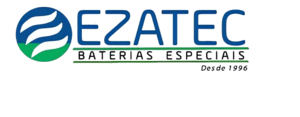No Blog Eletrônica de Potência você encontrará informações sobre teses,artigos,seminarios,congressos,tecnologias,cursos,sobre eletrônica potência. “TEMOS O DESTINO QUE MERECEMOS. O NOSSO DESTINO ESTA DE ACORDO COM OS NOSSOS MERITOS” ALBERT EINSTEIN. Imagination is more important than knowledge, for knowledge is limited while imagination embraces the entire world. EL FUTURO SE CONSTRUYE HOY,EL SUCESSO NO ES FRUTO DE LA CASUALIDAD,SE HUMILDE ,APRENDE SIEMPRE CADA DIA.
AUTOR DO BLOG ENG.ARMANDO CAVERO MIRANDA SÃO PAULO BRASIL

.gif)
“GRAÇAS A DEUS PELA VIDA,PELA MINHA FAMÍLIA,PELO TRABALHO.PELO PÃO DE CADA DIA,POR NOS PROTEGER DO MAL”
“SE SEUS PROJETOS FOREM PARA UM ANO,SEMEIE O GRÂO.SE FOREM PARA DEZ ANOS,PLANTE UMA ÁRVORE.SE FOREM PARA CEM ANOS,EDUQUE O POVO”


https://picasion.com/


sábado, 23 de maio de 2015
Switching Loss Reduction of AC-AC Converter using Three-level Rectifier and Inverter for UPS. Kazuki Yoneda, Hiroki Takahashi and Jun-ichi Itoh Dept. of Electrical, Electronics and Information Engineering Nagaoka University of Technology Nagaoka, Niigata, Japan
Abstract— This paper proposes an AC-AC converter, which consists of T-type three-level rectifier and inverter, for an on-line UPS. The switching loss of the proposed AC-AC converter is drastically reduced because the proposed converter is driven at a very low switching frequency which is six times of input side frequency. The T-type rectifier separates the maximum phasevoltage, medium phase-voltage and minimum phase-voltage from the input voltage. Next the output waveform is built by the T-type inverter from each maximum phase-voltage, middle phasevoltage and minimum phase-voltage. The proposed circuit can achieve not only high efficiency, but also short instantaneous interruption time. Furthermore, the proposed AC-AC converter compensates a voltage dip with changing an operation mode of a rectifier. In this paper, the fundamental operation of the proposed converter is confirmed by simulations and experiments. In addition, the power loss of the proposed converter is compared to a conventional on-line UPS and the efficiency of the proposed converter is 97.1% at rated load in an experiment.
FULL PAPER LINK ORIGINAL NA WEB
http://itohserver01.nagaokaut.ac.jp/itohlab/paper/2014/141105_peac2014/yoneda.pdf
LINK ALTERNATIVO
https://copy.com/LkWFpaxB26DaKPAI
Assinar:
Postar comentários (Atom)



Nenhum comentário:
Postar um comentário